How Much Does It Cost to Build a Town Hall in Florida?
Building a town hall in Florida typically costs between $7,530,000 and $16,170,000, translating to $251 to $539 per square foot for a 30,000 sq ft facility. This total cost includes construction, materials, HVAC systems, electrical and plumbing, interior finishes, and necessary permits. Lower-end costs cover standard designs and materials, while higher-end costs involve premium materials, custom designs, advanced technology, and sustainable features. Factors influencing the cost per square foot include design complexity, material quality, local labor rates, and specific requirements for government buildings.
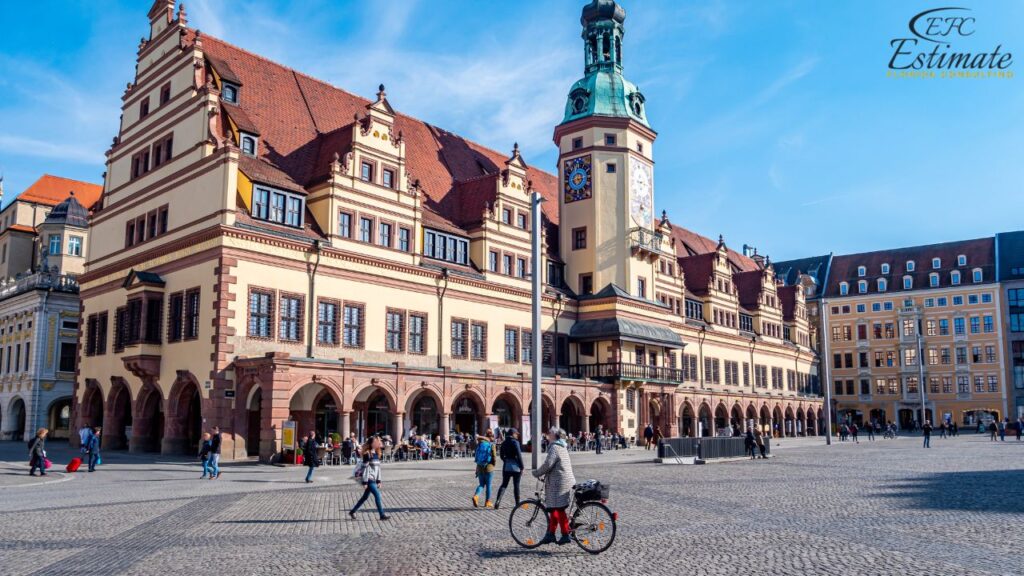
Proper planning and budgeting for unforeseen expenses are crucial to keep the project within the estimated cost range.
Detailed Cost Breakdown for Building a Town Hall in Florida
Site Preparation
Site preparation includes land acquisition, clearing, grading, and any necessary site improvements such as utilities and access roads. These costs can vary based on the location and condition of the land. Proper site preparation is essential to ensure a stable foundation and smooth construction process.
Component | Estimated Cost (in dollars) |
Land Acquisition | $200,000 – $1,000,000 |
Site Clearing and Grading | $50,000 – $150,000 |
Utilities and Infrastructure | $100,000 – $300,000 |
Site preparation is a critical step in the construction process, as it involves ensuring that the land is suitable for building. This phase can also include environmental assessments and the removal of any existing structures or debris. Proper site preparation can prevent future issues such as foundation settling or water drainage problems. Ensuring the land is appropriately graded and prepared can also enhance the durability and safety of the town hall’s foundation.
Construction
Construction costs cover the main building structure, including the foundation, walls, roof, and interior finishes. This category also includes labor costs, permits, and inspections. The complexity and design of the town hall will influence these costs.
Component | Estimated Cost per Sq Ft (in dollars) | Total Cost for 15,000 Sq Ft Town Hall (in dollars) |
Foundation and Structure | $120 – $250 | $1,800,000 – $3,750,000 |
Roofing and Exterior | $60 – $120 | $900,000 – $1,800,000 |
Interior Finishes | $90 – $180 | $1,350,000 – $2,700,000 |
Labor | $60 – $120 | $900,000 – $1,800,000 |
Permits and Inspections | $50,000 – $150,000 | $50,000 – $150,000 |
Construction involves multiple phases, from laying the foundation to installing the roof and finishing the interiors. Each phase requires careful planning and execution to ensure that the building meets all safety and quality standards. High-quality construction can enhance the longevity and durability of the town hall. Using high-quality materials and employing skilled labor can also ensure that the town hall meets aesthetic and functional requirements, providing a safe and enjoyable environment for both employees and residents.
Technology and Equipment
Technology and equipment costs include computer systems, communication networks, security systems, and audiovisual equipment necessary for efficient administrative operations and public meetings. Investing in high-quality equipment ensures the town hall can provide high-quality services.
Component | Estimated Cost (in dollars) |
Computer Systems | $200,000 – $400,000 |
Communication Networks | $100,000 – $200,000 |
Security Systems | $150,000 – $300,000 |
Audiovisual Equipment | $100,000 – $200,000 |
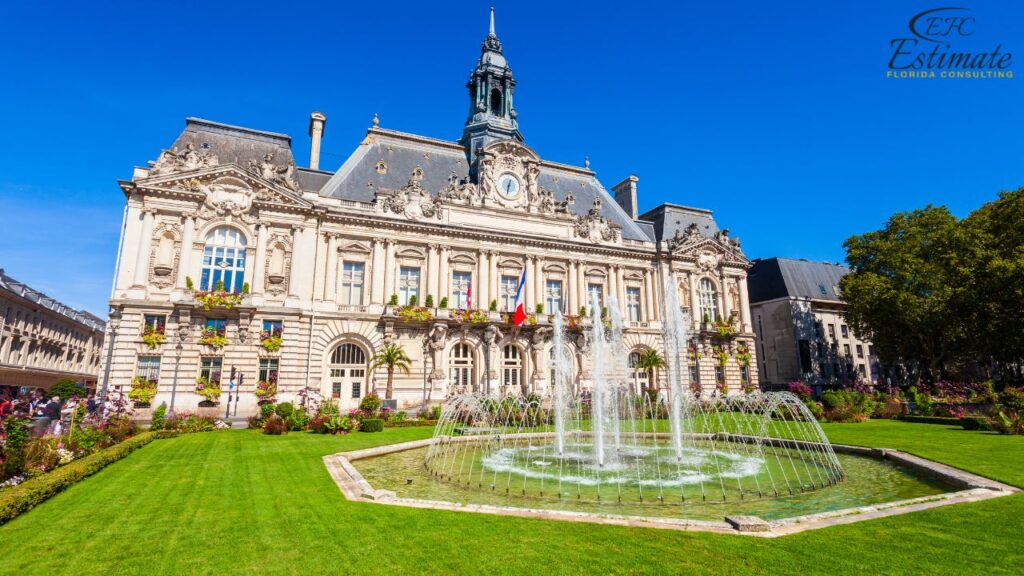
Advanced technology and equipment are essential for providing high-quality administrative services and ensuring the security of the town hall. This includes not only the primary systems like computer and communication networks but also supplementary equipment such as security cameras, access control systems, and public address systems. High-quality equipment can significantly enhance the operational efficiency and security of the town hall.
Additional Facilities and Amenities
Additional facilities such as conference rooms, public meeting spaces, administrative offices, and community centers add to the overall cost. These spaces enhance the functionality and user experience of the town hall.
Component | Estimated Cost (in dollars) |
Conference Rooms | $100,000 – $300,000 |
Public Meeting Spaces | $150,000 – $300,000 |
Administrative Offices | $300,000 – $600,000 |
Community Centers | $200,000 – $400,000 |
These additional facilities are crucial for the town hall’s operations. Conference rooms and public meeting spaces provide necessary venues for government and community meetings, while administrative offices are essential for the management team. Community centers can host a variety of events and activities, enhancing the town hall’s role as a community hub.
Contingency and Miscellaneous Costs
A contingency fund covers unexpected expenses and changes during the construction process. Miscellaneous costs may include insurance, legal fees, and marketing for the grand opening.
Component | Estimated Cost (in dollars) |
Contingency Fund | $500,000 – $1,000,000 |
Insurance and Legal Fees | $100,000 – $200,000 |
Marketing and Promotion | $50,000 – $100,000 |
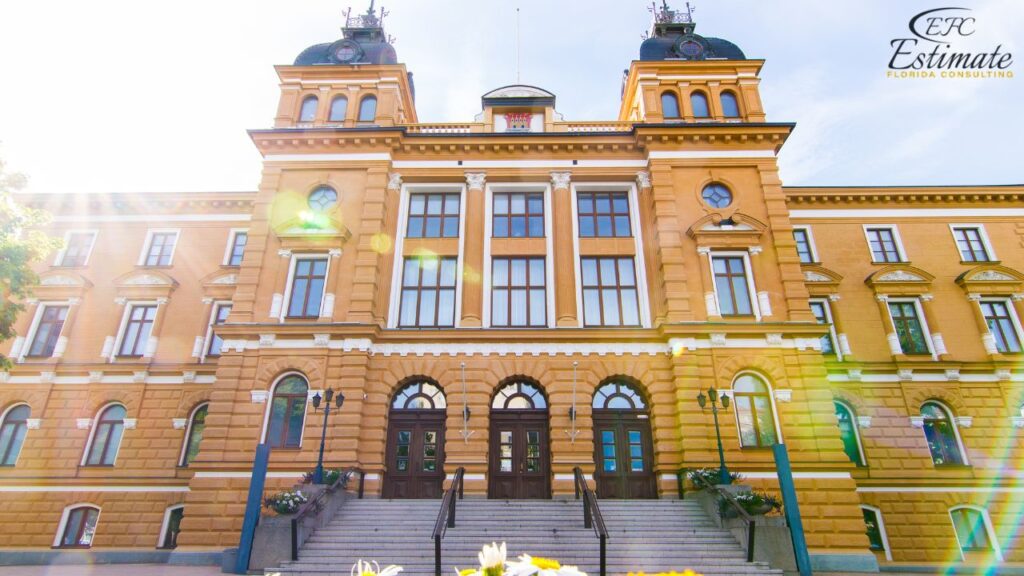
A contingency fund is essential to cover any unexpected costs that may arise during construction. This could include unforeseen site issues, design changes, or material price increases. Insurance and legal fees ensure that the project complies with all regulations and is protected against potential liabilities. Marketing and promotion are crucial for generating interest and attendance for the town hall’s opening and ongoing operations.
Furniture and Fixtures
Furniture and fixtures are essential for creating a comfortable and functional environment. This includes office furniture, public seating, and decor.
Component | Estimated Cost (in dollars) |
Office Furniture | $100,000 – $300,000 |
Public Seating | $50,000 – $150,000 |
Decor | $30,000 – $70,000 |
High-quality furniture and fixtures can enhance the aesthetic appeal and functionality of the town hall. Comfortable seating and well-designed office spaces can improve the experience for both employees and residents.
Maintenance and Operations
Ongoing maintenance and operational costs are important to consider. This includes utilities, staffing, and routine maintenance.
Component | Estimated Annual Cost (in dollars) |
Utilities | $100,000 – $200,000 |
Staffing | $200,000 – $500,000 |
Maintenance | $50,000 – $100,000 |
Regular maintenance is crucial to keeping the town hall in good working order. This includes everything from cleaning and repairs to system upgrades and inspections. Proper maintenance can extend the life of the building and its systems, ensuring the town hall remains a valuable community asset.
Download Template For Town Hall Project Breakdown
- Materials list updated to the zip code
- Fast delivery
- Data base of general contractors and sub-contractors
- Local estimators

Fundraising and Sponsorship
To cover the high costs of building and maintaining a town hall, fundraising and sponsorship efforts are often necessary. This can include grants, donations, and corporate sponsorships.
Component | Estimated Fundraising Goal (in dollars) |
Grants and Donations | $1,000,000 – $5,000,000 |
Corporate Sponsorship | $500,000 – $2,000,000 |
Effective fundraising and sponsorship efforts can significantly offset construction and operational costs. Engaging with the community and potential sponsors can build support for the town hall and secure necessary funds. Successful fundraising campaigns can also enhance community involvement and investment in the town hall’s future.
Fundraising and Sponsorship
To cover the high costs of building and maintaining a town hall, fundraising and sponsorship efforts are often necessary. This can include grants, donations, and corporate sponsorships.
Component | Estimated Fundraising Goal (in dollars) |
Grants and Donations | $1,000,000 – $5,000,000 |
Corporate Sponsorship | $500,000 – $2,000,000 |
Effective fundraising and sponsorship efforts can significantly offset construction and operational costs. Engaging with the community and potential sponsors can build support for the town hall and secure necessary funds. Successful fundraising campaigns can also enhance community involvement and investment in the town hall’s future.
Factors Affecting Construction Costs
Size and Capacity
The size and capacity of the town hall significantly impact the overall construction cost. Larger town halls with more extensive facilities require more materials, labor, and larger support infrastructure such as parking lots and landscaping. The design must also consider functionality, accessibility, and future expansion possibilities to ensure that the town hall can accommodate the community’s needs. Larger buildings also need more complex HVAC systems, safety features, and utilities, all of which add to the cost.
Location
The location of the town hall can affect construction costs due to variations in land prices, labor rates, and local building codes and regulations. Urban areas may have higher land and labor costs compared to rural locations. Additionally, location-specific factors such as soil conditions, flood zones, and hurricane resilience requirements can influence construction methods and materials. Building in a strategic location can enhance the town hall’s accessibility and visibility, making it easier for residents to access government services. The location also affects operational costs, such as utilities and maintenance, depending on the local climate and environmental conditions.
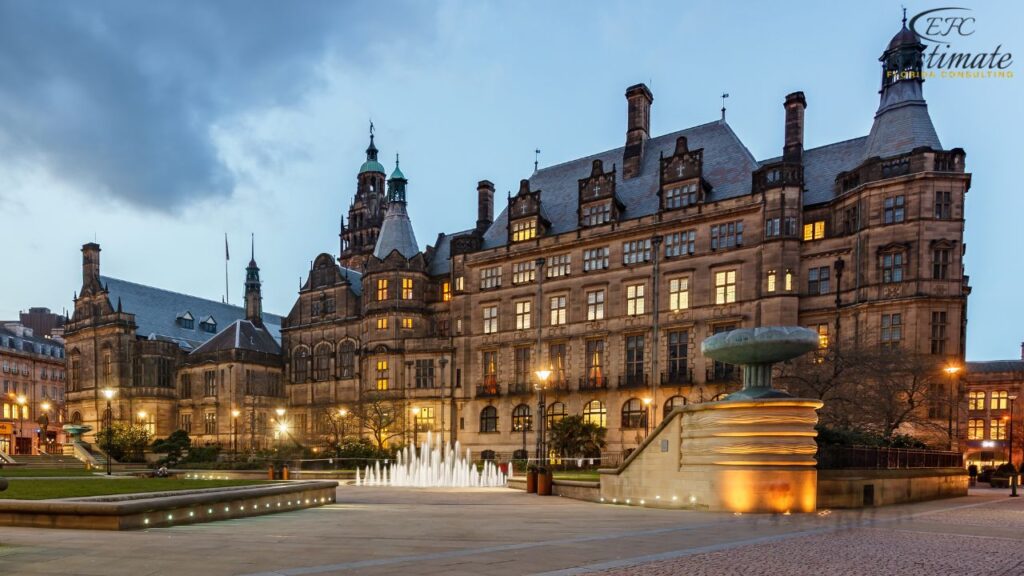
Design and Materials
The design and quality of materials used in construction play a crucial role in determining the overall cost. High-end finishes, custom architectural features, and sustainable building practices can increase expenses. However, investing in durable, high-quality materials can reduce maintenance and repair costs over time, ensuring the town hall remains in good condition for many years. Additionally, incorporating energy-efficient and environmentally friendly materials can result in long-term savings and environmental benefits. The aesthetic appeal and functionality of the design can also influence the town hall’s ability to attract visitors and serve as a community hub.
Facilities and Amenities
The inclusion of additional facilities and amenities such as conference rooms, public meeting spaces, administrative offices, and community centers can impact the cost. The quality and quantity of these features should align with the town hall’s intended use and target audience. Investing in modern amenities enhances the functionality and attractiveness of the town hall, ensuring it meets the diverse needs of the community. Comprehensive facilities can support a wide range of activities, from government functions to community events, increasing the building’s utility and value.
Technology and Equipment
Modern town halls require advanced technology and equipment to support efficient administrative operations and provide high-quality services to residents. This includes computer systems, communication networks, security systems, and audiovisual equipment for public meetings. Investing in cutting-edge technology ensures that the town hall can operate efficiently and meet the technical requirements of different government functions. High-quality technology also enhances the user experience, making interactions with the government more accessible and efficient for residents.
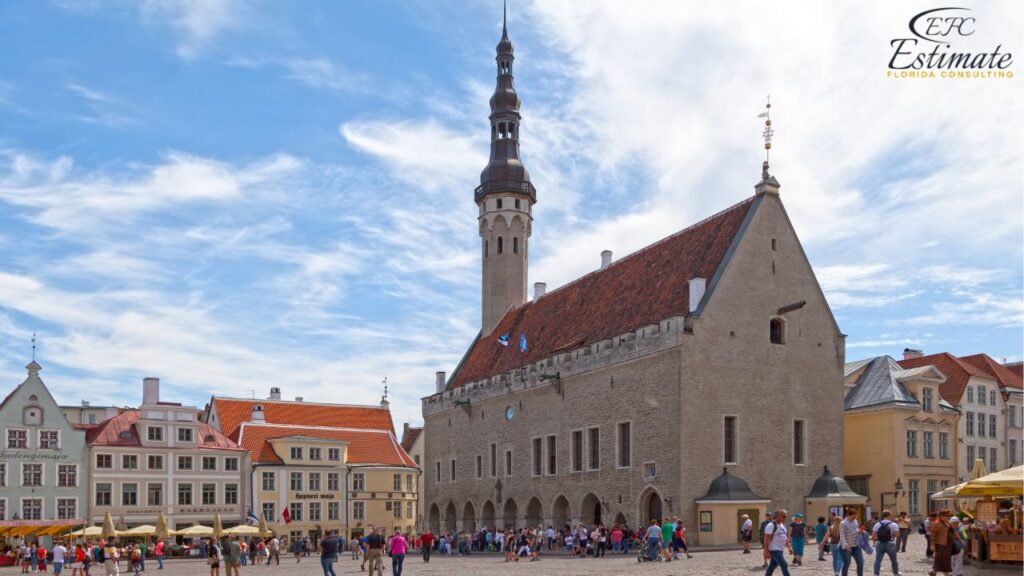
Benefits of Building a Town Hall
Administrative Efficiency
A town hall serves as the central hub for local government operations, housing various administrative offices and services. It provides a centralized location for government officials and staff, which can improve administrative efficiency and accessibility for residents. The design and layout of the town hall can significantly impact the effectiveness of service delivery, ensuring that all departments can operate smoothly and collaboratively. Efficient operations in the town hall translate to better public services, reduced waiting times, and streamlined processes for residents and businesses.
Community Engagement
A town hall is more than just an administrative building; it serves as a community center where residents can engage with local government and participate in civic activities. It can host town meetings, public forums, and community events, fostering transparency and encouraging community involvement. By providing a venue for residents to voice their concerns and opinions, the town hall plays a vital role in promoting civic engagement and strengthening the democratic process. Regular community events and activities at the town hall can also help build stronger community bonds and promote a sense of belonging among residents.
Economic Impact
The construction and operation of a town hall can stimulate the local economy. It creates jobs during the construction phase and ongoing employment opportunities for government staff and support services. Additionally, a well-designed town hall can attract visitors and businesses, contributing to the local economy. The presence of a town hall can also increase property values in the surrounding area, leading to broader economic benefits for the community. The town hall can also serve as a catalyst for further development, attracting new businesses and investments to the area, thereby boosting local economic growth.
Get 5 New Leads Next 7 Days With Our System
- Multi-Family House
- Single-Faimly House
- Modern House
- Duplex
- Ranch House
- Bungalow
Cultural and Social Benefits
A town hall can serve as a cultural and social landmark, hosting events, exhibitions, and cultural programs that enrich the community. It can provide spaces for public art displays, cultural performances, and educational workshops, fostering a sense of community pride and cultural appreciation. These activities can enhance the town’s cultural landscape and provide residents with opportunities for lifelong learning and enrichment. The town hall can also be a venue for celebrating local traditions and heritage, strengthening community identity and cultural continuity.
Conclusion
Building a town hall in Florida is a substantial investment that can provide numerous benefits, including administrative efficiency, community engagement, economic impact, and cultural and social enrichment. By understanding the various costs involved, including site preparation, construction, technology and equipment, additional facilities, and contingency funds, you can effectively plan and budget for your project. Proper planning and budgeting are crucial to ensuring a successful construction project that meets the needs of the community and provides a versatile, high-quality venue for government and community activities. Investing in a town hall not only enhances the administrative capabilities of the local government but also supports community engagement and development, providing a lasting legacy for future generations.
FAQs
The typical cost to build a town hall in Florida ranges from $7,530,000 to $16,170,000, or approximately $251 to $539 per square foot for a 30,000 sq ft facility.
The cost per square foot is influenced by factors such as design complexity, material quality, local labor rates, and specific requirements for government buildings.
The total cost includes construction, materials, specialized lighting and sound systems, seating, stage equipment, and interior finishes. Additional facilities like rehearsal spaces, dressing rooms, administrative offices, and concessions areas are also part of the cost.
Site preparation involves land acquisition, clearing, grading, and site improvements such as utilities and access roads. This can vary based on the location and condition of the land.
A contingency fund is essential to cover unexpected expenses and changes during the construction process. It typically ranges from $500,000 to $1,000,000.
A contingency fund is essential to cover unexpected expenses and changes during the construction process. It typically ranges from $500,000 to $1,000,000.
Miscellaneous costs may include:
- Insurance and Legal Fees: $100,000 – $200,000
- Marketing and Promotion: $50,000 – $100,000
Google Reviews



Process To Get Town Hall Cost Estimate Report
Here I am going to share some steps to get town hall cost estimate report.
-
You need to send your plan to us.
You can send us your plan on info@estimatorflorida.com
-
You receive a quote for your project.
Before starting your project, we send you a quote for your service. That quote will have detailed information about your project. Here you will get information about the size, difficulty, complexity and bid date when determining pricing.
-
Get Estimate Report
Our team will takeoff and estimate your project. When we deliver you’ll receive a PDF and an Excel file of your estimate. We can also offer construction lead generation services for the jobs you’d like to pursue further.

